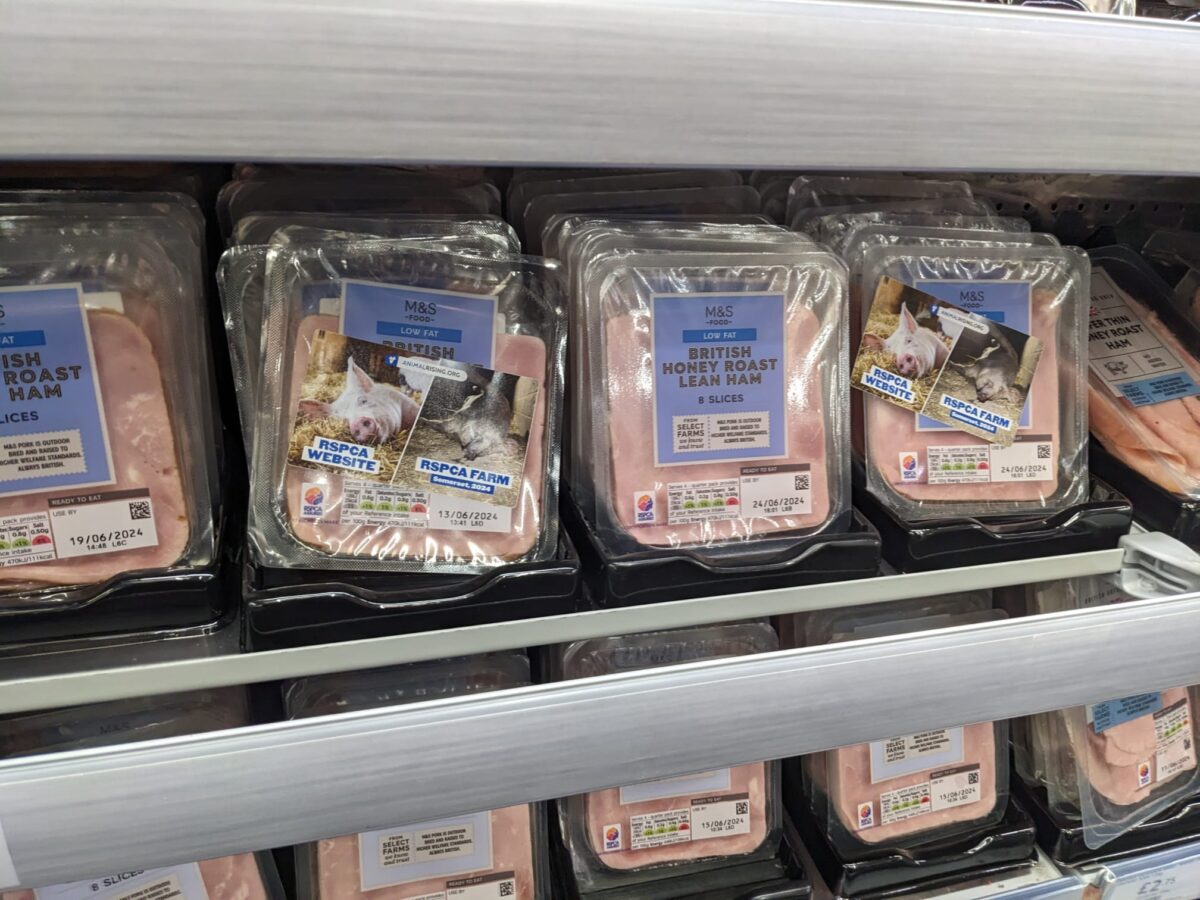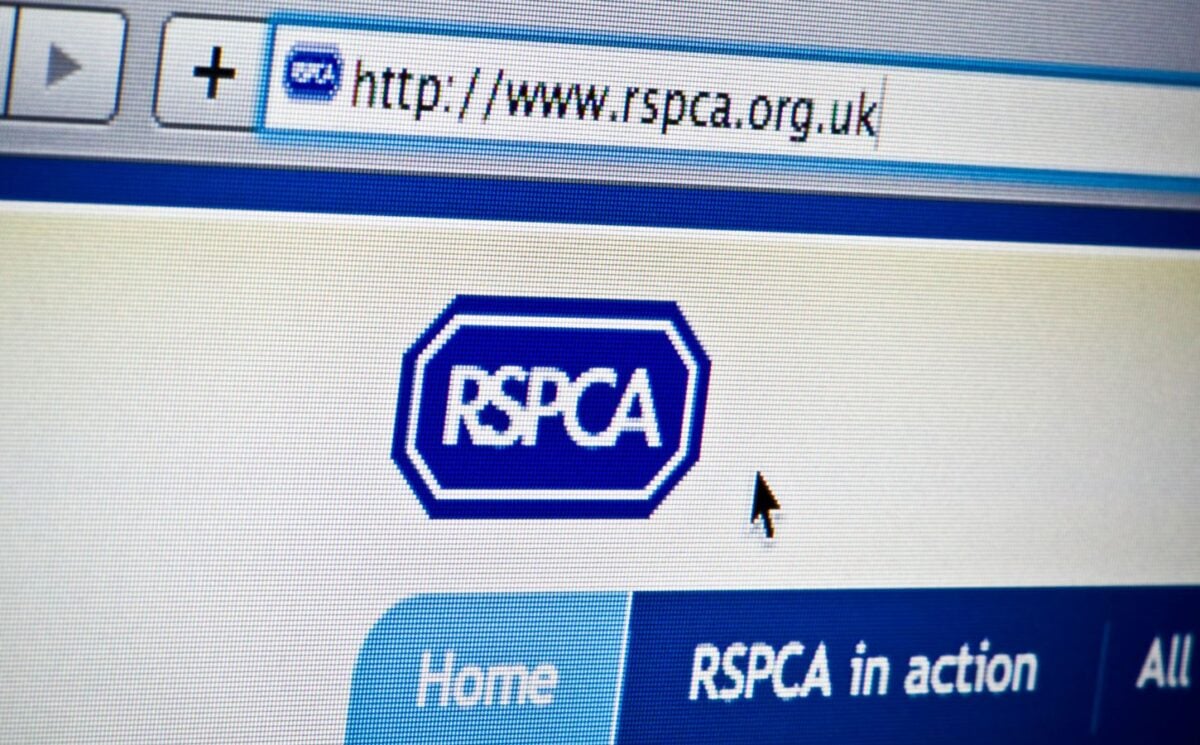Last week, the UK’s leading animal welfare charity, the RSPCA, announced that it had removed all recipes from its website.
It may come as a surprise to some that an organization that claims to stand up for animals of “every kind” was simultaneously teaching people to cook and eat them. But the 200-year-old charity offered a wide range of recipes containing pigs, chickens, cows, fishes, eggs, and dairy products on its site.
Read more: RSPCA-Approved Farm Under Investigation For ‘Deeply Distressing’ Pig Shootings
The recipe ingredients all promoted “RSPCA Assured” animal products. These products can be found at supermarkets across the UK, and they supposedly come from farms that maintain a set of “higher welfare” standards. These standards include no cages, “humane” slaughter, more living space, and “enriched” living conditions.
RSPCA Assured falls from grace
But the RSPCA Assured scheme was catapulted into the spotlight earlier this month. On June 9, a major exposé published in the Sunday Times outlined a number of serious allegations of animal abuse at multiple farms accredited by the scheme.
Vegan group Animal Rising visited 45 farms in the UK. It said that it found animal cruelty in every one. A report released by the investigators detailed an alleged 280 breaches of legal standards and 94 breaches of code for animal welfare. Examples included salmon with eyes and body parts missing, live chicks pecking at dead ones, and pigs having their tails docked in apparent routine mutilations.

The investigation sparked outrage, and RSPCA came under huge pressure to drop the scheme, including from its own president Chris Packham. The RSPCA told Plant Based News (PBN) that it launched an “immediate, urgent” investigation after receiving the report. It also claimed that some of the farms have since been found not to be RSPCA Assured. (It’s worth noting that Animal Rising’s investigation is not the first to uncover cruelty at RSPCA Assured farms. A number of exposés from various organizations have uncovered animal welfare breaches over the years.)
RSPCA removes recipes
In apparent response to the Animal Rising investigation, the RSPCA removed all online recipes on Monday, June 10.
On the section of the site that previously held recipes, there is now a statement reading: “The RSPCA and RSPCA Assured made the decision to temporarily remove all plant and meat-based recipes from the RSPCA Assured website. We are conducting an internal review across all platforms into how we can best share our Eat Less, Eat Better messaging and part of this review process involves analysing our pre-existing recipe content.”
Read more: ‘High Welfare’ RSPCA-Approved Scottish Salmon Linked To Animal Abuse
The statement goes on to state that the group is “actively campaigning” for people to “eat less and better” animal products, and that it “strongly encourages consumers to “choose higher welfare options” when buying animal products.
Animal Rising spokesperson Nathan McGovern told PBN that the organization’s decision to drop recipes is a “fantastic first step,” but that “they need to follow up by moving away from the Assured scheme and telling the truth about farming animals.”
“This starts with calling for drastic meat reduction as part of transitioning to a plant-based food system,” he added.
The RSPCA has not stopped endorsing meat on its website. A separate page continues to promote RSPCA animal flesh at UK supermarkets.
What’s next for the RSPCA?
At present, there is no indication of whether recipes will return, or if meat, dairy, and egg products will continue to be promoted on the website in future.
Despite a number of campaigns for it to do so, from both Animal Rising and another vegan organization called Animal Justice Project, the charity is continuing to refuse to drop RSPCA Assured.
It previously told the Sunday Times that abandoning the scheme would “risk leaving millions of farm animals with even less protection.” When asked by PBN earlier this week whether there had been an update to this decision, a spokesperson said that they will “carry out a review to ensure the integrity of the scheme” if there is “any suggestion of systemic issues” following the investigation.
“Whilst we agree that even one case of poor welfare is one too many, we are confident that we are doing the right thing in working with the farming industry to continually drive up standards and improve the lives of over 100 million farmed animals,” they added. They also said that they are “working to create seismic change for farm animals in the future” by “encouraging people to eat fewer animal products and if they do, to choose higher welfare.”
The problem with “higher welfare”

Despite the widespread cruelty seen on its farms over the years, the RSPCA is doubling-down on its claims of the importance of “higher welfare” meat. But Animal Rising and Animal Justice Project are among the organizations casting doubt on whether high welfare animal products can really exist.
“Years of undercover filming by Animal Justice Project have revealed that pain, suffering, and death are standard across the animal agriculture industry,” Claire Palmer, founder and director of Animal Justice Project, told PBN. “Much of this is deliberately hidden behind cleverly marketed products and assurance labels, such as RSPCA Assured.”
Animal Justice Project is an animal rights charity that wants to remove all animals from the food system. It recently launched a petition urging the RSPCA to drop Assured after one of its own investigations uncovered chickens with “extreme health issues” and in “poor conditions” on farms earlier this year.
“’High welfare’ farming is an oxymoron—there is no way to ‘humanely’ breed animals into existence only to be killed for our consumption,” added Palmer. “In fact, ‘high welfare’ is damaging as it appeases a public wanting to maintain the status quo. This is why, as an animal rights organization, we will never campaign for ‘high welfare’ agriculture as a solution. Instead, we will continue in our mission to show consumers the reality for animals, despite the welfare labels.”
“High welfare farming is just a pipe dream,” added McGovern. “There is no way to nicely farm animals that do not want to die. Schemes like RSPCA Assured and Red Tractor are flat-out lying to the British Public.”
Read more: The UK Government Is Facing Legal Action Over Lobsters – Here’s Why






